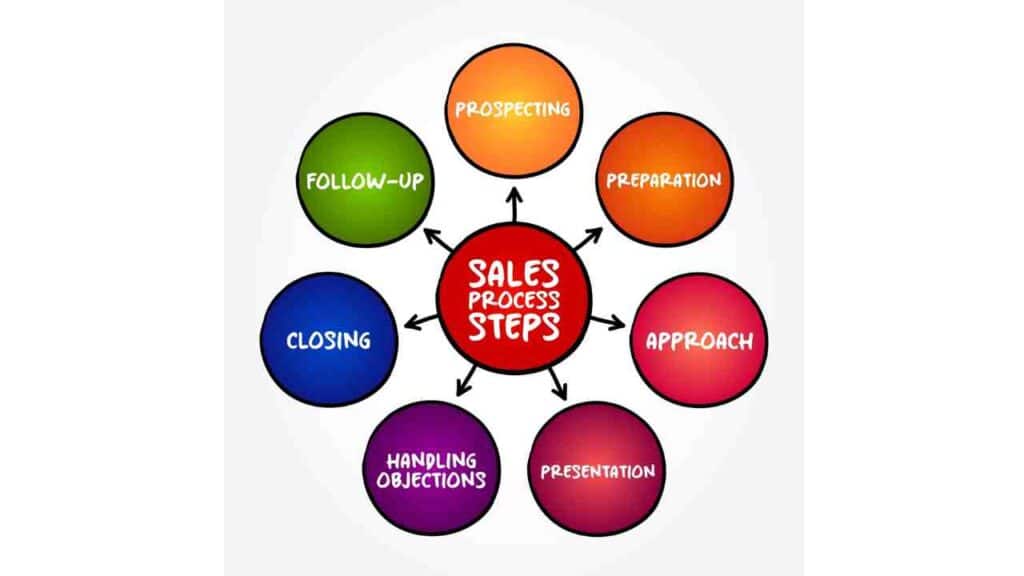Leveraging CRM to Optimize Sales Processes

Customer Relationship Management (CRM) systems have become an essential tool for businesses of all sizes. By leveraging CRM, companies can streamline their sales processes, improve customer relationships, and ultimately drive revenue growth. In this article, we will explore the benefits of using CRM to optimize sales processes and provide valuable insights on how businesses can make the most out of their CRM implementation.
1. Understanding CRM and its Role in Sales Optimization
CRM refers to a set of strategies, technologies, and practices that businesses use to manage and analyze customer interactions and data throughout the customer lifecycle. It enables companies to gain a deeper understanding of their customers, improve customer satisfaction, and drive sales effectiveness.
When it comes to sales optimization, CRM plays a crucial role in several ways:
- Centralized Customer Data: CRM systems provide a centralized database where businesses can store and access customer information, including contact details, purchase history, preferences, and interactions. This centralized data allows sales teams to have a comprehensive view of each customer, enabling them to personalize their sales approach and provide a better customer experience.
- Streamlined Sales Processes: CRM systems offer features and automation tools that help streamline sales processes. From lead generation and qualification to deal tracking and closing, CRM provides a structured framework for sales teams to follow, ensuring consistency and efficiency in their sales efforts.
- Improved Sales Forecasting: By analyzing historical sales data and customer behavior, CRM systems can provide valuable insights for sales forecasting. This enables businesses to make more accurate revenue projections, allocate resources effectively, and make informed business decisions.
- Enhanced Collaboration: CRM systems facilitate collaboration among sales teams by providing a centralized platform for communication, task management, and knowledge sharing. This improves team coordination, reduces duplication of efforts, and enables sales managers to monitor and track team performance more effectively.
2. Key Benefits of Leveraging CRM for Sales Optimization
Implementing CRM for sales optimization can yield numerous benefits for businesses. Let’s explore some of the key advantages:
2.1 Improved Lead Management
CRM systems enable businesses to effectively manage leads throughout the sales funnel. By capturing and organizing lead data, businesses can track the progress of each lead, identify bottlenecks, and take appropriate actions to move leads through the sales pipeline. This ensures that no leads fall through the cracks and maximizes the chances of conversion.
For example, a real estate agency can use CRM to track leads from initial contact to property viewing and closing. The CRM system can automatically assign leads to the appropriate sales agent, send follow-up emails, and provide reminders for scheduled appointments. This streamlines the lead management process and increases the agency’s chances of closing deals.
2.2 Enhanced Customer Engagement
CRM systems enable businesses to engage with customers in a more personalized and targeted manner. By leveraging customer data, businesses can tailor their sales and marketing messages to specific customer segments, increasing the relevance and effectiveness of their communications.
For instance, an e-commerce business can use CRM to segment customers based on their purchase history and preferences. This allows the business to send targeted product recommendations and promotions to each customer segment, resulting in higher engagement and conversion rates.
2.3 Increased Sales Productivity
CRM systems provide sales teams with tools and automation features that help streamline their workflows and increase productivity. By automating repetitive tasks, such as data entry, follow-up emails, and appointment scheduling, sales representatives can focus more on selling and building relationships with customers.
For example, a software company can use CRM to automate the process of sending software trial licenses to potential customers. The CRM system can automatically generate and send personalized license keys, track trial usage, and send follow-up emails to nurture leads. This automation saves time and effort for the sales team, allowing them to focus on closing deals.
2.4 Data-Driven Decision Making
CRM systems provide businesses with valuable insights and analytics that can inform data-driven decision making. By analyzing customer data, sales performance metrics, and market trends, businesses can identify patterns, spot opportunities, and make informed decisions to optimize their sales strategies.
For instance, a marketing agency can use CRM to track the effectiveness of different marketing campaigns and channels. By analyzing the data, they can identify which campaigns generate the highest return on investment (ROI) and allocate their marketing budget accordingly. This data-driven approach helps businesses optimize their sales and marketing efforts for maximum impact.
3. Best Practices for Leveraging CRM to Optimize Sales Processes
While implementing a CRM system is a step in the right direction, businesses need to follow best practices to ensure they make the most out of their CRM investment. Here are some best practices for leveraging CRM to optimize sales processes:
3.1 Define Clear Sales Processes
Before implementing CRM, businesses should define clear and well-documented sales processes. This involves mapping out the entire sales journey, from lead generation to deal closure, and identifying key milestones and actions at each stage. By having a clear understanding of the sales processes, businesses can configure their CRM system to align with their specific needs and workflows.
3.2 Customize CRM to Fit Your Business
CRM systems offer a wide range of customization options to tailor the system to your business requirements. Take advantage of these customization features to configure your CRM system to match your sales processes, terminology, and data fields. This ensures that the CRM system becomes an integral part of your sales workflow and maximizes user adoption.
3.3 Provide Adequate Training and Support
Proper training and support are crucial for successful CRM implementation. Ensure that your sales team receives comprehensive training on how to use the CRM system effectively. Provide ongoing support and resources to address any questions or issues that may arise. This will help your team embrace the CRM system and leverage its full potential.
3.4 Integrate CRM with Other Business Systems
Integrating CRM with other business systems, such as marketing automation, email marketing, and customer support, can further enhance its capabilities and streamline workflows. For example, integrating CRM with an email marketing platform allows businesses to track email interactions and automate personalized follow-up emails based on customer behavior.
3.5 Continuously Monitor and Improve
CRM implementation is an ongoing process. Continuously monitor and analyze the data and metrics provided by your CRM system to identify areas for improvement. Regularly review and refine your sales processes based on the insights gained from CRM analytics. This iterative approach ensures that your sales optimization efforts are always evolving and adapting to changing market dynamics.
4. Case Study: How Company X Leveraged CRM to Optimize Sales Processes
Company X, a software-as-a-service (SaaS) provider, implemented a CRM system to optimize their sales processes and drive revenue growth. By leveraging CRM, they achieved the following results:
- Improved lead management: Company X used CRM to track leads from initial contact to conversion. By automating lead assignment and follow-up processes, they reduced lead response time by 50% and increased lead conversion rates by 30%.
- Enhanced customer engagement: With CRM, Company X segmented their customer base and personalized their sales and marketing messages. This resulted in a 20% increase in email open rates and a 15% increase in customer retention.
- Increased sales productivity: CRM automation features allowed Company X’s sales team to focus more on selling. By automating administrative tasks, they increased their sales representatives’ productivity by 25%.
- Data-driven decision making: CRM analytics provided Company X with valuable insights on sales performance and customer behavior. By analyzing the data, they identified upsell and cross-sell opportunities, resulting in a 10% increase in average deal size.
Leveraging CRM to optimize sales processes can significantly benefit businesses by improving lead management, enhancing customer engagement, increasing sales productivity, and enabling data-driven decision making. By following best practices and customizing CRM to fit their specific needs, businesses can maximize the value of their CRM investment. Case studies like Company X demonstrate the tangible results that can be achieved through effective CRM implementation. To take advantage of the benefits of CRM for sales optimization, businesses can explore solutions like SaasExpert.ca – Your All-In-One Sales and Marketing Platform for small businesses, agency owners, and marketers. With the right CRM strategy and tools in place, businesses can unlock their full sales potential and drive sustainable growth.
Learn more about “Utilizing CRM to Enhance Sales Processes” right here.
Frequently asked questions about Leveraging CRM to Optimize Sales Processes.

1️⃣ How can CRM software boost my sales process? 🤔
Answer: Great question! CRM (Customer Relationship Management) software isn’t just a digital Rolodex; it’s a powerful tool that enhances sales processes in multiple ways:
Better Data Organization: CRM systems store essential customer data in one central location, making it easier to access and update. No more scrambling through spreadsheets or notes! 📊
Improved Lead Tracking: With a CRM, you can follow your leads throughout their journey, from cold prospects to satisfied customers. This visibility ensures that no lead falls through the cracks. 🕵️♂️
Enhanced Communication: Maintain consistent communication with your prospects. Automated follow-ups and reminders ensure you’re always in touch at the right time. 📞
Analytics and Insights: Understand which sales strategies work and which need fine-tuning. CRM analytics provide actionable insights to keep refining your sales process. 📈
2️⃣ Is integrating CRM into my current sales process complicated? 🛠
Answer: Integrating a CRM into your sales process might seem daunting, but it’s much simpler than you’d think. Modern CRM systems are designed for seamless integration. Plus, many come with user-friendly interfaces and step-by-step guides. Remember, the initial setup and learning phase is a short-term investment for long-term gains. And the best part? Many CRM providers offer onboarding support and training, ensuring a smooth transition for your team! 🎓🔄
3️⃣ How can CRM help in forecasting sales? 🌦
Answer: Forecasting sales is crucial for business planning, and a CRM is your crystal ball! 🌐 With a CRM, you get:
Data Compilation: Pull together historical sales data, current deals in the pipeline, and potential leads. This holistic view is golden for forecasting. 📜
Trend Identification: Spot buying patterns, peak sales seasons, and even predict future sales spikes or lulls. 🔍
Scenario Planning: Play with different scenarios in your CRM to understand potential outcomes and make informed decisions. 💡
Remember, accurate forecasting means better resource allocation, smarter marketing strategies, and ultimately, increased sales! 📌
4️⃣ Can CRM help my sales team collaborate more effectively? 👥
Answer: Absolutely! CRM is not just about managing customers; it’s about fostering teamwork. Here’s how:
Shared Data: With a centralized database, all team members can access the same, up-to-date information about leads and customers. No more “Who spoke to this client last?” situations! 🔄
Task Assignment: Managers can allocate tasks, set reminders, and monitor progress in real-time, ensuring everyone is on the same page. 📅
Note Sharing: Team members can add notes or comments, ensuring seamless handovers and shared knowledge. 📝
So, with a CRM, your sales team can work together like a well-oiled machine, driving towards common goals. 🤝
5️⃣ Will using a CRM system make my sales strategy too rigid? 🧱
Answer: Not at all! While a CRM provides structure, it also offers flexibility. Think of it as a framework that can be molded to fit your unique sales strategy. 🌟
Customization: Most CRMs allow you to customize dashboards, reports, and workflows to align with your sales process. Tailor away! 🎨
Adaptability: If your sales strategies evolve (as they often do), your CRM can evolve with them. Adjust settings, integrate new tools, or add new data fields as needed. 🔄
Continuous Learning: With the insights a CRM provides, you can continually refine and adapt your sales approach for better results. 💭
So, a CRM doesn’t box you in; it gives you the tools to build, refine, and grow your sales strategy dynamically! 🌱






